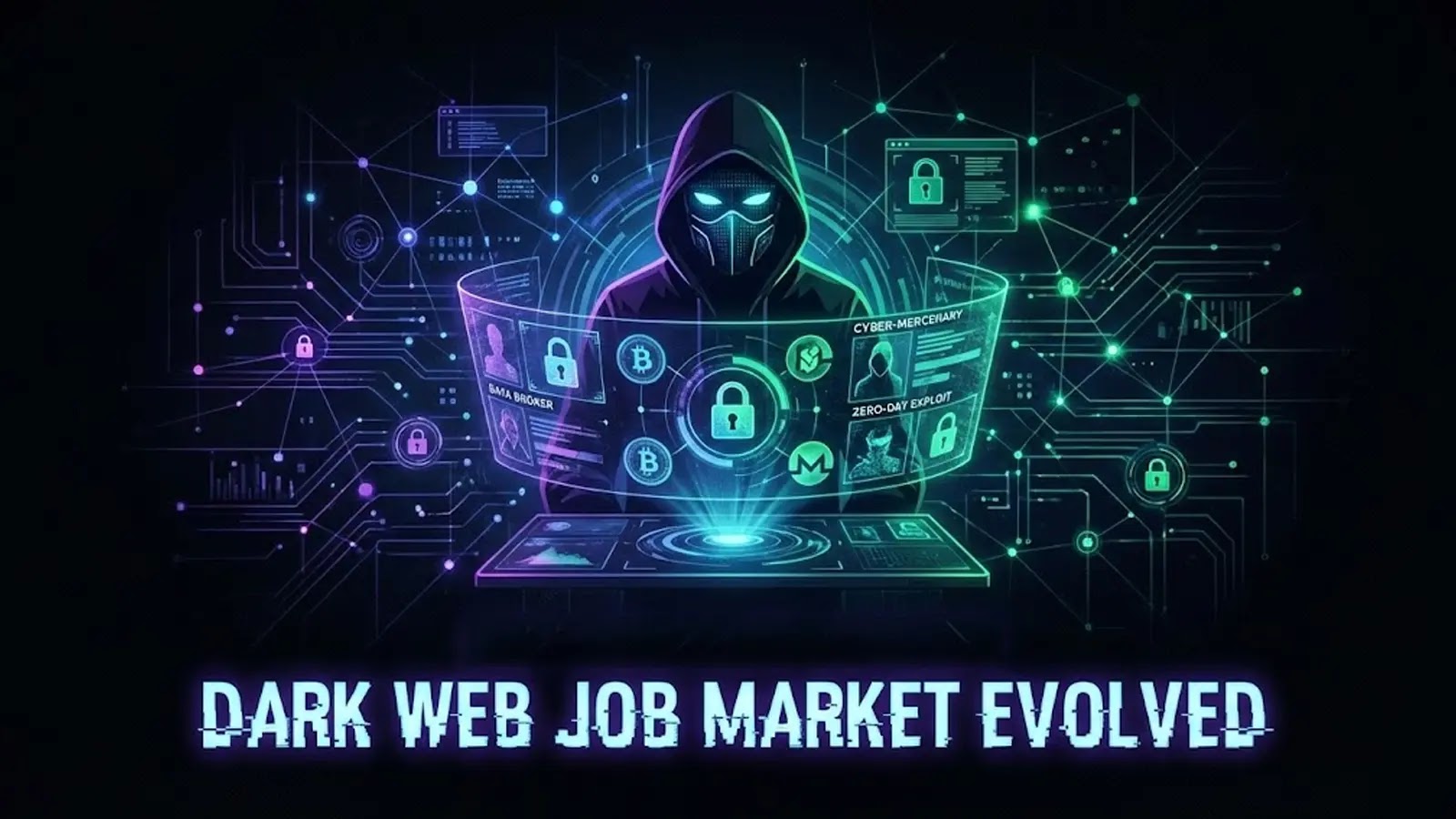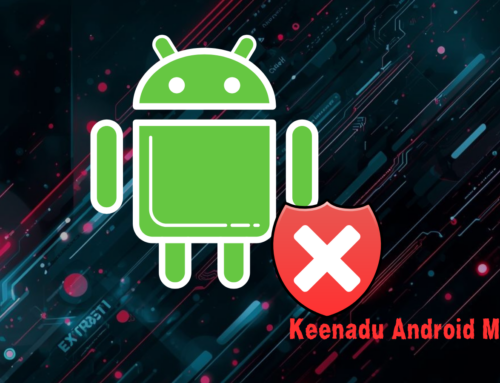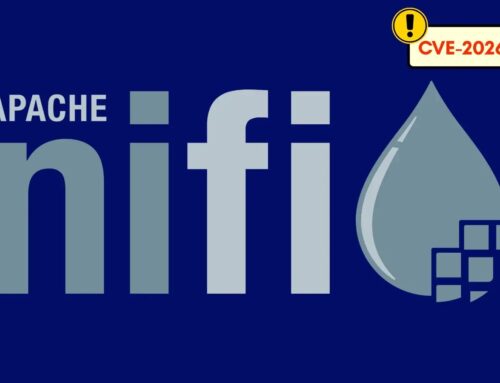
Dark Web Job Market Evolved – Prioritizes Practical Skills Over Formal Education
The intricate world of the dark web, often shrouded in mystery and illicit activities, has revealed a fascinating and somewhat unsettling evolution in its labor market. Far from monolithic, this hidden corner of the internet functions as a parallel economy, complete with its own unique recruitment strategies, compensation models, and professional hierarchies. A recent analysis unveils a stark departure from traditional hiring practices, where practical, demonstrable skills are king, and formal education takes a back seat.
This shift has significant implications for understanding the cybercrime ecosystem and how threat actors cultivate their capabilities. It underscores the urgent need for cybersecurity professionals to grasp the operational realities of their adversaries, moving beyond theoretical knowledge to confront highly skilled and pragmatically trained individuals. The findings, derived from an examination of over 2,200 dark web job postings, highlight a landscape where talent is aggressively pursued and rewarded based on immediate utility rather than academic credentials.
The Dark Web Job Market: A Skills-First Economy
Unlike LinkedIn or Indeed, the dark web’s job boards operate on a different set of principles. Here, prospective employers aren’t sifting through résumés adorned with university degrees. Instead, the emphasis is squarely on tangible capabilities. Employers demand proof of concept, demonstrable experience, and a portfolio of successful, albeit illicit, projects. This environment fosters a meritocracy where skill outranks formal qualifications, creating a highly competitive, yet accessible, labor pool for cybercriminals.
This focus on practical skills is not a new phenomenon in the underground but its prioritization is becoming increasingly pronounced. Dark web forums buzz with requests for specialists in a myriad of offensive cyber disciplines, from sophisticated malware development to intricate network penetration techniques. The demand for immediate, impactful results shapes every aspect of the recruitment process.
Understanding Dark Web Recruitment Norms and Compensation
The recruitment process on the dark web is often unconventional, ranging from direct solicitations within specialized forums to encrypted messaging app discussions. Trust and reputation are paramount. Prospective candidates might be asked to complete “coding challenges” or “exploit demonstrations” to prove their abilities. The vetting process, while informal, is rigorous and designed to weed out law enforcement infiltrators or incompetent individuals.
Compensation models on the dark web are equally distinct. While some roles offer upfront payments, a significant portion operates on a commission or profit-sharing basis, directly linking remuneration to the success of illicit operations. This incentivizes performance and fosters a results-driven culture among threat actors. Furthermore, attractive benefits, such as anonymity tools, access to exclusive networks, and even “insurance” against legal complications, are sometimes offered to lure top talent. The financial allure for highly skilled individuals can be substantial, often exceeding what they might earn in legitimate IT roles, particularly in regions with economic disparities.
Key Skills in Demand on the Dark Web
The dark web’s parallel labor market actively seeks individuals proficient in a range of specialized cyber skills. These demands are dynamic, reflecting the evolving landscape of cybersecurity threats and defensive measures. Here are some of the most sought-after competencies:
- Malware Development: Experts capable of crafting sophisticated, evasive, and custom malware, including ransomware, trojans, and rootkits. This involves deep knowledge of programming languages like C++, Python, and Assembly, as well as understanding of anti-analysis techniques.
- Exploit Development: Individuals with the ability to discover and weaponize zero-day vulnerabilities or effectively utilize existing exploits. This requires strong reverse engineering skills and a thorough understanding of operating system internals and network protocols.
- Social Engineering and Phishing: Specialists in crafting highly convincing phishing campaigns, developing persuasive social engineering tactics, and executing spear-phishing attacks. Understanding human psychology and communication is crucial here.
- Network Penetration and Lateral Movement: Professionals skilled in breaching corporate networks, identifying vulnerabilities in infrastructure, and moving laterally within compromised environments to gain access to critical assets.
- Anonymization and Operational Security (OpSec): Experts in maintaining anonymity on the internet, using tools like Tor, VPNs, and secure communication channels, as well as practicing rigorous OpSec to evade detection.
- Cryptocurrency Laundering: Individuals knowledgeable in obscuring the origins of illicit digital funds through various cryptocurrency mixing services, tumblers, and decentralized exchanges.
- Data Exfiltration and Monetization: Those proficient in extracting sensitive data from compromised systems and strategies for selling or leveraging that data for financial gain.
Implications for Cybersecurity Professionals
The burgeoning dark web job market presents formidable challenges for legitimate cybersecurity. It highlights a critical disparity: while traditional education systems often prioritize theoretical knowledge, the adversaries are focusing on practical, hands-on expertise. For organizations and security experts, this translates into needing to:
- Rethink Internal Talent Development: Emphasize practical, red team/blue team exercises and hands-on skill development over rote learning. Certifications like OSCP (Offensive Security Certified Professional) gain even more relevance.
- Understand Adversary Tactics: Stay informed about the skills and tools being advertised on the dark web. This intelligence can provide crucial insights into emerging threat vectors and attacker capabilities.
- Focus on Proactive Defense: Develop defensive strategies that anticipate the practical skills of threat actors rather than just reacting to known vulnerabilities. This includes robust penetration testing and continuous vulnerability assessments.
Conclusion
The dark web’s evolution into a sophisticated parallel labor market, prioritizing practical skills over traditional educational benchmarks, is a significant development in the broader cybersecurity landscape. It underscores the adaptive nature of cybercrime and the continuous professionalization of threat actors. For legitimate organizations and security professionals, this shift is a wake-up call to reassess talent acquisition, training methodologies, and defensive strategies. Understanding the dynamic nature of this underground economy is not merely an academic exercise; it is an essential component of an effective, forward-thinking cybersecurity posture.





